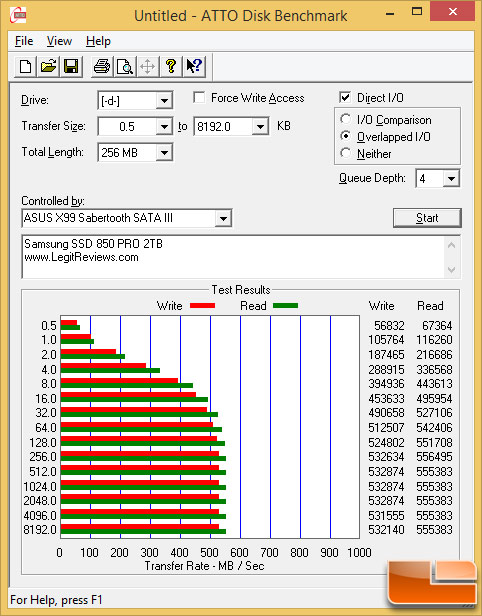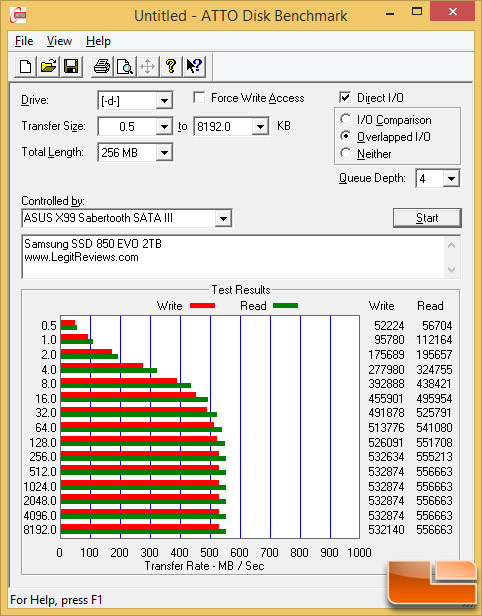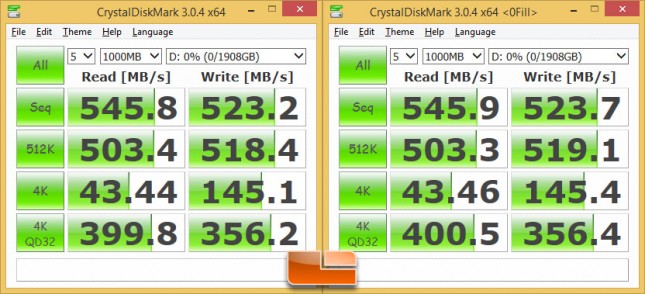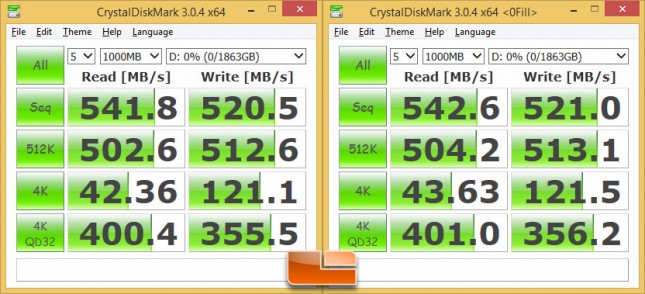Samsung 850 PRO 2TB SSD Vs Samsung 850 EVO 2TB SSD
ATTO & CrystalDiskMark
ATTO v2.47
ATTO is one of the oldest drive benchmarks still being used today and is still very relevant in the SSD world. ATTO measures transfers across a specific volume length. It measures raw transfer rates for both reads and writes and places the data into graphs that can be very easily interpreted. The test was run with the default runs of 0.5KB through 8192KB transfer sizes with the total length being 256MB.
ATTO – Samsung SSD 850 PRO 2TB:
ATTO – Samsung SSD 850 EVO 2TB:
Benchmark Results: ATTO showed both the Samsung SSD 850 PRO and 850 EVO 2TB drives maxing out at 556 MB/s read and 533MB/s write in the standard overlapped I/O benchmark. If you look at some of the smaller file sizes you’ll see the Samsung SSD 850 PRO is performing at a slightly higher performance level until the drives start to plato at their peak sequential read/write speeds.
CrystalDiskMark 3.0.4 x64
CrystalDiskMark is a small benchmark utility for drives and enables rapid measurement of sequential and random read/write speeds. Note that CDM only supports Native Command Queuing (NCQ) with a queue depth of 32 (as noted) for the last listed benchmark score. This can skew some results in favor of controllers that also do not support NCQ.
CystalDiskmark – Samsung SSD 850 PRO 2TB:
CystalDiskmark – Samsung SSD 850 EVO 2TB:
Benchmark Results: The Samsung SSD 850 PRO 2TB drive topped out at 546 MB/s read and 523 MB/s write on the sequential test whereas the the Samsung SSD 850 EVO 2TB drive reached 542MB/s read and 521 MB/s write. The real performance difference that is worth talking about is not in the sequential performance numbers though as it would be the Random 4K performance. The Samsung SSD 850 Pro peaked at 145 MB/s write on that test versus just 121 MB/s on the 850 EVO drive. The 4K Random Read scores were right around 43 MB/s on each drive.
Let’s look at some other benchmarks!




